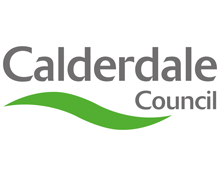
Following the devastating floods on Boxing Day, Calderdale Council is urging residents and people helping with the clean up to take some simple precautions to stay safe and well.
Cllr Tim Swift, Calderdale Council’s Leader, said:
“If your home or business has been flooded or you’re helping out with the clean up, it’s vital that you help protect yourself and others from illness and injury. The work that people have put in to cleaning up after the devastation has been amazing. But we must remember that there are still hazards – we can prepare for these by taking a few simple steps. We’re providing important health advice and practical information to keep people safe and well.”
DON’T:
- walk or drive through flood water. Drain covers may be missing and you may fall down uncovered drains and gullies or trip over debris hidden by the floodwater.
- start to clean up or carry out repairs until you are sure it is safe to do so.
use a candle to guide you when entering a flooded building.
- touch electrical appliances, sockets or switches that have been in contact with flood water, to avoid the risk of electrocution. If in doubt ask a qualified electrician.
- lift anything beyond your own personal capacity – get help.
- use petrol or diesel generators inside buildings, e.g. to power pumps and dehumidifiers. The exhaust gases contain carbon monoxide which can quickly build up to poisonous levels.
DO:
- evacuate if asked to do so by the emergency services.
- wash your hands and areas of exposed skin with clean, warm water and soap after contact with floodwater and always before handling or consuming food. Use a nailbrush and antiseptic gel for hands if necessary. Wet wipes can be used if no clean water is available.
- keep children, vulnerable people and pets well away from flood waters.
- move furniture, portable electrical items and valuables out of harm’s way.
- boil spring water used for drinking and food preparation. For further guidance see Water supplies.
- if you notice a change in water quality, such as a change in the colour, taste or smell of your tap water, phone your water company.
- turn off gas and electricity. For further guidance see:
- dispose of all food which has been in contact with flood water. The Food Standards Agency issues full guidance: Food safety advice(external link).
- use cleaning fluids in accordance with manufacturers’ instructions. Dilute to the appropriate concentration. Wear gloves and goggles if directed.
- wear rubber gloves, a face mask and appropriate footwear when cleaning up. Flood water may be contaminated with sewage, sharps, syringes and chemicals.
For more advice on cleaning up flooded premises safely, please see Public Health England’s guidance: Floods – how to clean up your home safely(external link). Public Health England and the Environment Agency have also issued the following guidance: Flooding: advice for the public(external link).
If you need to get in touch with Calderdale Council’s adult social care please call 01422 393000 between 8.45am and 5.30pm Monday – Thursday, and 8.45am to 5.00pm on Fridays. Outside these times, if there is an emergency, please call the Emergency Duty Team on 01422 288000. For more information visit Gateway to Care.
Feeling tired, anxious and having difficulty sleeping is normal after you have been flooded. Contact friends and family for support as it can take a long time for life to return to normal. If you think you might need further emotional support or counselling, please contact the following services:
- Noah’s Ark has a self-referral service – 01422 300457
- Healthy Minds provides peer-led wellbeing groups in Sowerby Bridge – 01422 345154
- Calderdale Talking Therapies (Insight Healthcare) offers psychological support for adults registered with a Calderdale GP; this is a self-referral service – 0300 555 0191
- SANE mental health charity has a helpline – 0845 767 8000
- The Samaritans – 0845 790 9090
For longer term trauma, including post-traumatic stress, people are advised to see their GP.
